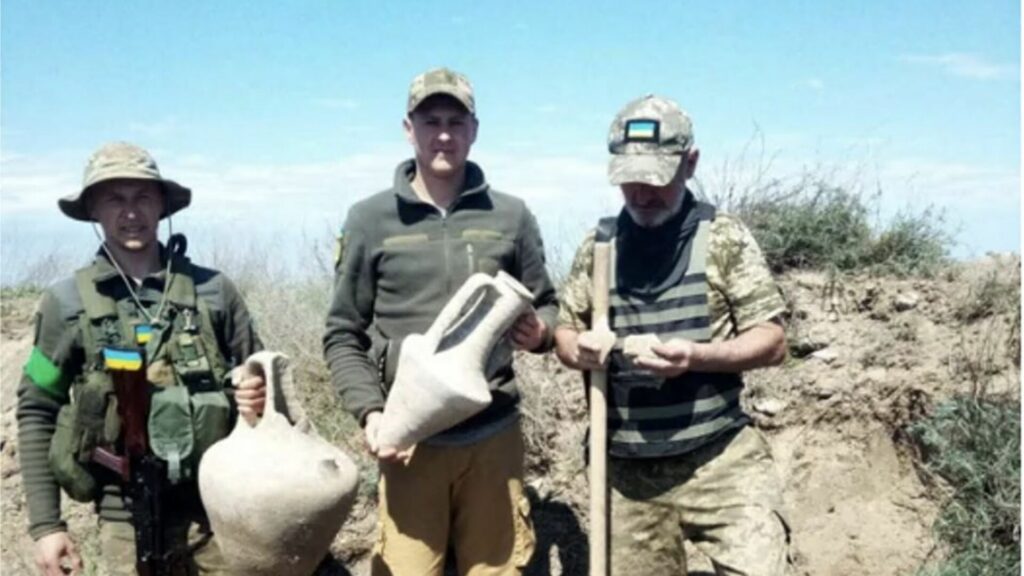Soldiers from the Ukrainian 126th Territorial Defence Brigade discovered ancient Greek amphorae while digging barricades in Odessa last week.
The soldiers who were trying to protect themselves from Russian attacks shared their discovery on Facebook as part of their updates saying that they “handed the artefacts over to the staff of the Odessa Archaeological Museum”.
It is impossible for archaeologists to access the site where the troops made the discovery due to shelling and the army invasion, however, according to journalist Yana Suporovska the artefact’s are said date back to the 400 or 500 BC.
Publication Heritage Daily reported that they most likely belong to the Neolithic period as the Greeks have had a strong presence in the wider region of the Black Sea and even colonised the area in Classical times all the way into the Byzantine Era.


The Hellenic influence continued in Ukraine with Greco-Byzantine outposts on the northern Black Sea coast as Crimea bustled with Hellenes, being a centre of trade and culture.
Marioupol (Marioupolis) was founded by Crimean Greeks and up until the evacuation following the Russian invasion was home to more than 120,000 ethnic Greeks.
Media channel Ukraine24 posted a video on Twitter showing the site of the discovery:
👍#Ukrainian servicemen digging trenches near #Odesa struck what turned out to be ancient amphorae — a kind of clay urns commonly used by the Greeks. The artifacts reportedly date back to 4-5 centuries B.C.E. They were passed on to the Odesa Archaeological Museum pic.twitter.com/gJP208FJfs
— U24 (@u24_news) May 12, 2022









